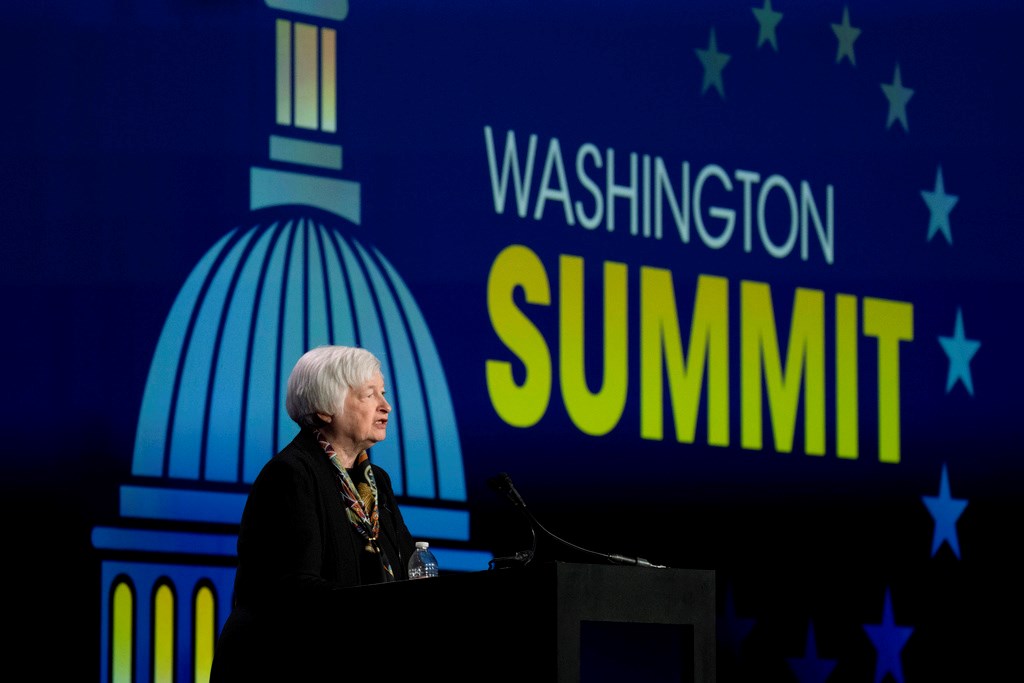Raising US debt ceiling is utterly essential: SoT Yellen
She explained that the “prioritization of payments" in the present case is effectively a default.
-

Treasury Secretary Janet Yellen speaks to the American Bankers Association, Tuesday, March 21, 2023, in Washington (AP Photo/Manuel Balce Ceneta)
Today, at the American Bankers Association summit, Treasury Secretary Janet Yellen warned that it is “utterly necessary” to raise the debt ceiling otherwise it would be “absolutely catastrophic”.
"I consider it utterly essential for Congress to act to raise or suspend the debt limit," Yellen said. She explained that failing to raise the debt ceiling "would be absolutely catastrophic”: calling on congress to take the necessary actions.
Back in 2011, when a similar congressional gridlock over the debt ceiling was prevalent, Yellen noted that the perpetuation of the gridlock and the consequent delay in the decision to raise the debt ceiling led to the downgrade of the American credit rating.
Read more: US debt default might trigger global financial crisis
It was the first in history that the US credit rating suffers a downgrade. Yellen added that the downgrade caused "substantial harm" to consumers, small business owners, and the financial system at large.
When asked about the prospect of prioritizing payments, Yellen dismissed it. She described cherry-picking bills as “risky and dangerous” to the banking system because it undermines its foundation. She explained that “prioritization” in the present case is effectively a default.
Read more: US Debt ceiling ‘must be raised’ ahead of default: Treasury Secretary
Last week, Janet Yellen, during a hearing in the Senate for the Finance Committee, slammed Republican calls for negotiations, saying that the United States must increase its debt limit before breaching its financial obligations.
She added that President Joe Biden is prepared to negotiate with Republicans on other economic policy matters, but not on the debt ceiling.
Read more: US risks default by July unless debt limit is raised
Last month, the Congressional Budget Office (CBO) said the US Treasury could exhaust its funds by July leading to a default on American debt unless Congress raises the current $31.4 trillion debt ceiling.
The budget office now projects that the annual federal budget deficit over the next 10 years will reach $18.8 trillion despite its earlier estimates released last May that the figure would be 20% lower at $15.7 trillion.
Read more: SVB crashes, assets seizure sends chaos across the tech startup sector
After Silicon Valley Bank, Silvergate Bank, and Signature Bank collapsed, Moody's Investors Service revised its outlook for the US financial system from stable to negative on Tuesday.
Following the collapses, the Biden administration claimed it took steps through the Treasury Department and other organizations to safeguard deposits and reassure Americans.

 3 Min Read
3 Min Read








